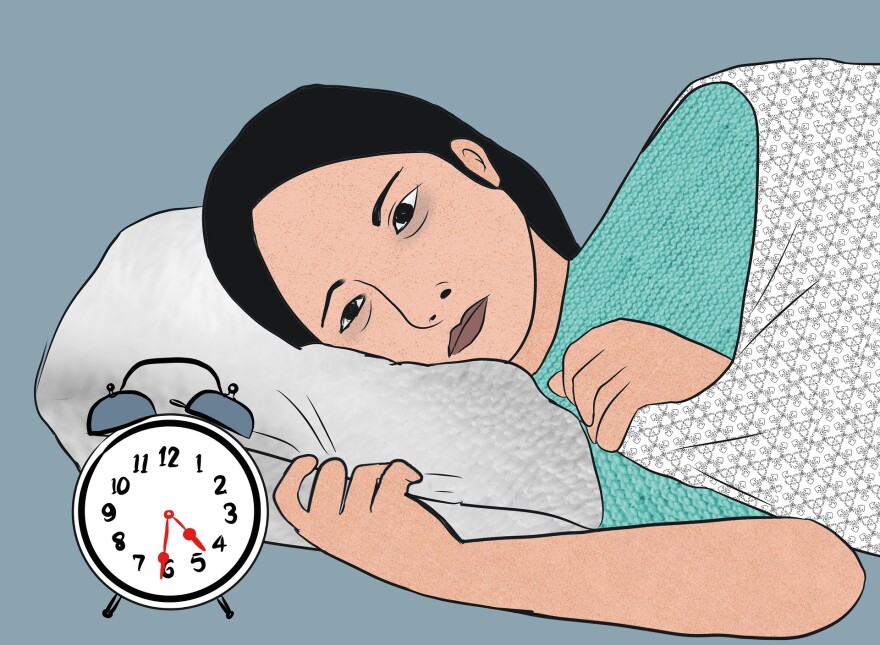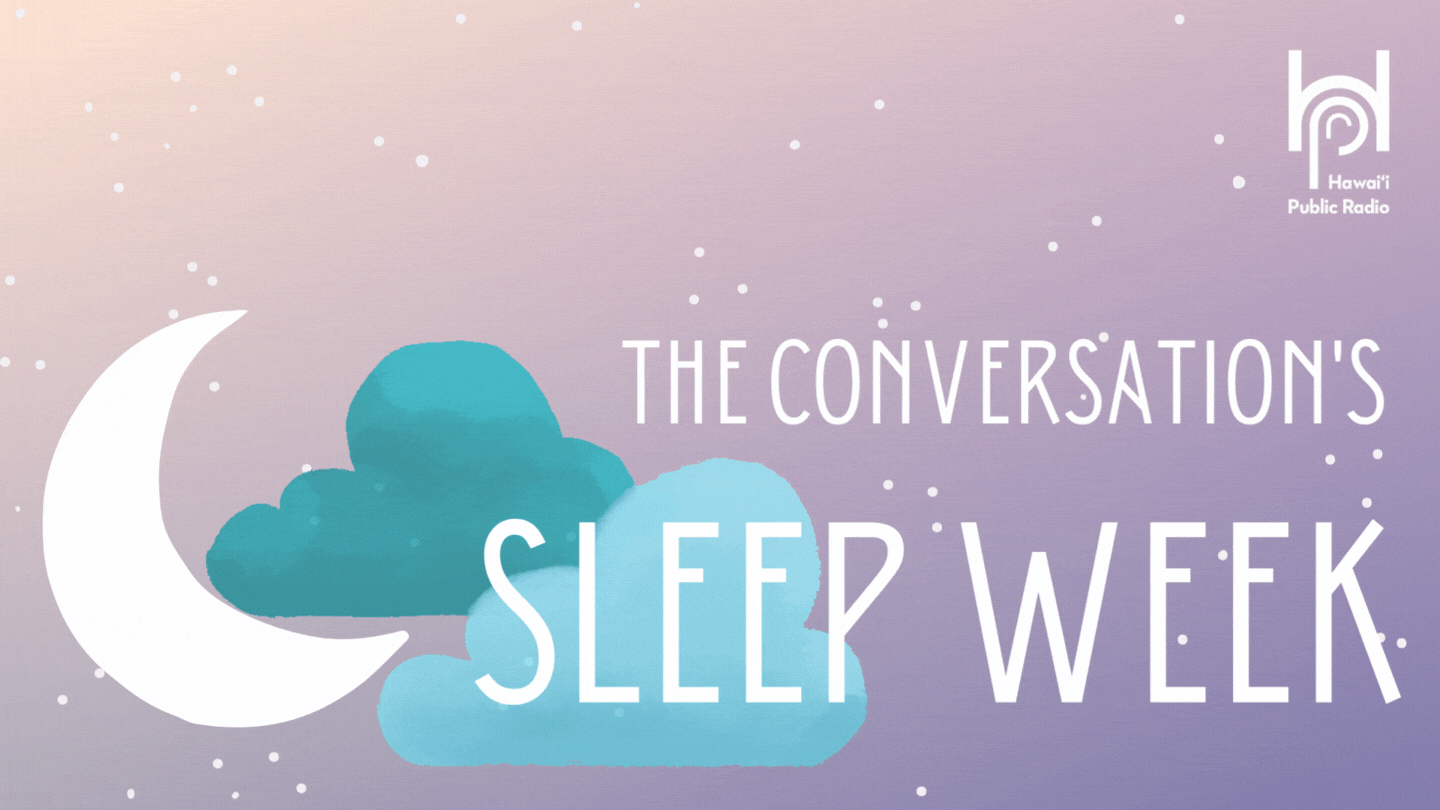Honolulu resident Eevee Hill has not had a good night’s sleep in about 15 years – and she’s not alone.
“I have some nights I don’t sleep at all,” she told The Conversation, “and on average, probably get three to four hours of sleep.”
One in three people will experience insomnia at some point in their life, likely due to illness, injury or emotional distress. But for the 10% of people — including Hill — who suffer from chronic insomnia, sleepless nights can follow them for years.
Insomnia is easy to diagnose, said Dr. Anil Rama. He’s president of the Sleep and Brain Clinic in California and serves as an assistant adjunct professor in the sleep medicine department at Stanford University.
The patient must exhibit “difficulty falling asleep, difficulty staying asleep, waking up too early in the morning and never getting back to sleep, or sleeping through the night, but feeling unrested.”
Although the condition is easy to recognize, it is far more challenging to address. Hill knows firsthand how difficult it can be to treat insomnia. She uses Trazodone, a medication that “knocks you out” but makes “you wake up much more groggy.”
Many of Rama’s patients have had similar experiences to Hill.
“We think of insomnia as a nighttime problem,” he said. “But it's really how it impacts their daytime.”
Exhaustion can put strain on one’s relationships and social life, Rama said. It also impairs work and academic performance.
Hill says her insomnia has limited her career options. “It's so severe that I can't work anything that's 9-to-5 and requires so many regular hours,” she said. “I can't work anything that’s customer-facing.”
She enjoys her job as a data scientist, especially because the flexible hours can accommodate her fatigue – but it is hard to ignore the restrictions of insomnia. Rama said everyday activities, such as spending time with friends, can leave an insomniac feeling “wiped out.”
All that stress only exacerbates insomnia. The less people sleep, the more anxious they become, and the more anxious they become, the less they sleep.
“You can develop what's called as negative associations with sleep, where instead of thinking sleep is natural, you're thinking sleep is unnatural, and you'll never be able to fall asleep,” Rama explained.
Many also struggle with orthosomnia, a condition that causes people to obsess over optimizing sleep. Rama said a person with orthosomnia may tell themselves, “All my life's problems, everything, my work, my relationships, my school, my, my well being, my health, everything is related to my sleep, and I can't sleep.”
Hill knows that cycling through her negative thoughts does more harm than good, but said it can be difficult not to let her insomnia cause anxiety.
“You feel like you are messing up your ability to fall asleep. There's a lot of personal responsibility thrust upon you,” she said. “Because it's like, who else can I blame?”
As frustrating as insomnia treatment can be, there is still hope. Researchers are paying more attention to the way digestion impacts quality of sleep. Whether or not one has insomnia, Rama advises everyone to eat unprocessed foods to improve sleep. Hill, who has a digestive disorder, is exploring the idea of taking probiotics to see if it will improve both her digestion and her sleep.
Respiration also has a major impact on quality of sleep. In order to improve respiratory health, Rama suggests nasal breathing, the simple practice of breathing through your nose.
Many have the habit of breathing through their mouths, especially when in conversation. Although mouth-breathing may seem trivial, it may increase the likelihood of developing certain sleep problems, such as sleep apnea, according to Rama.
Taking note of our breathing habits during the day, said Rama, is a good first step in understanding breathing challenges at night.
Research on the effects of digestion and respiration on sleep are relatively new. Our understanding of sleep is constantly evolving and Hill said our cultural views of sleep is changing too.
“I feel like the attitude about mental health as a whole has changed the conversation just naturally,” Hill said. “I think they're aware that insomnia can really affect your quality of life, and the way you have to live and structure around it.”
Although the conversation around sleep has shifted, Hill’s sleep has not.
“I can envision futures in which I sleep better,” Hill said. “But I can't imagine, at this point, a regular sleep cycle.”
This interview aired on The Conversation on Aug. 25, 2022. The Conversation airs weekdays at 11 a.m. on HPR-1.







